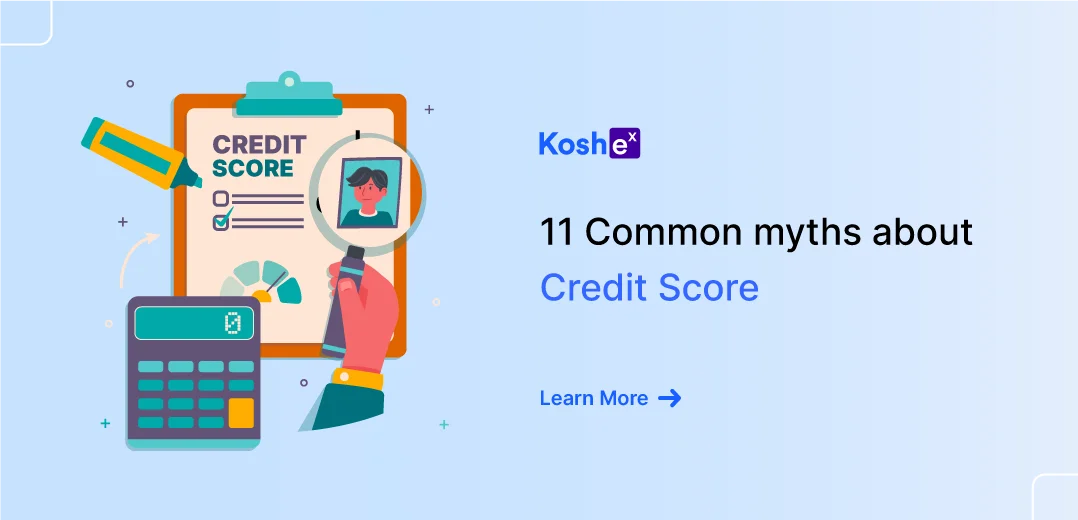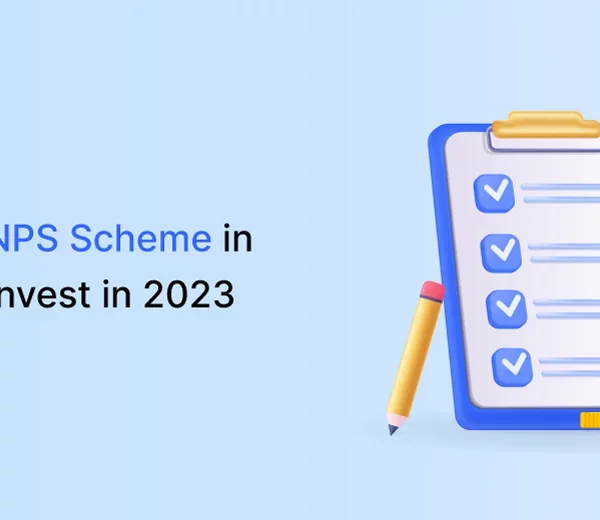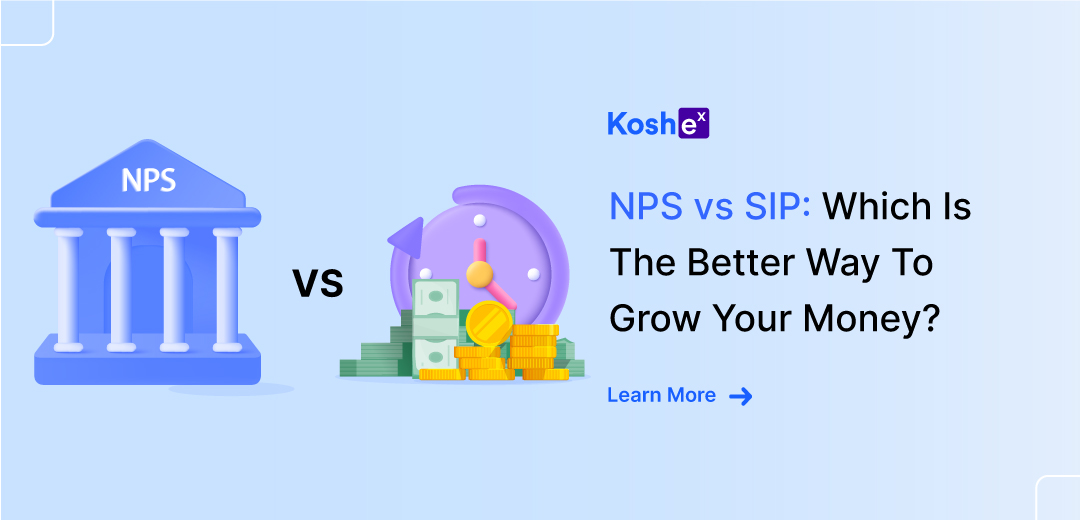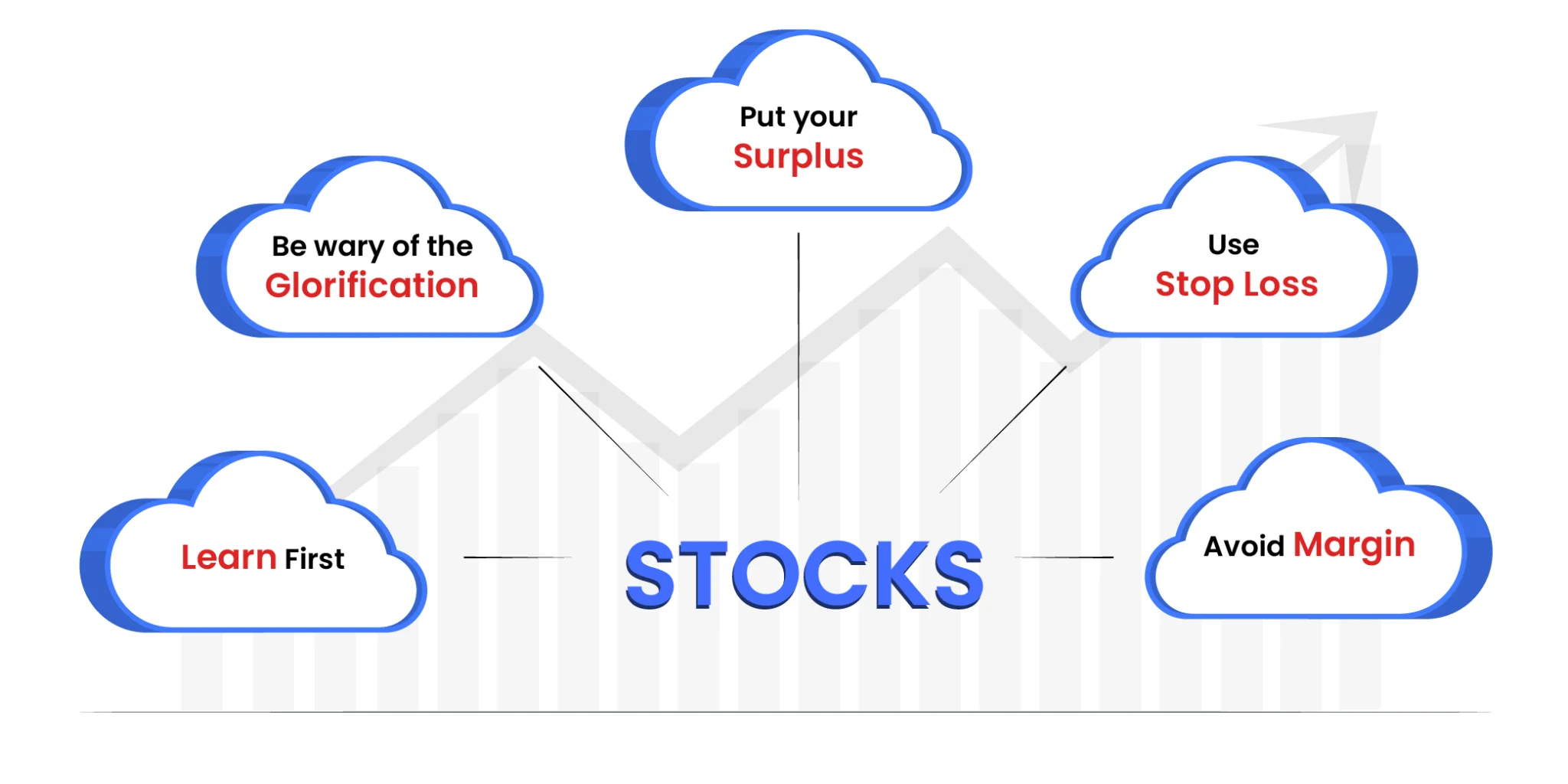Common Myths About Credit Score
With more and more people reaching out for credit cards, everyone must learn about credit scores. They determine your creditworthiness; if you are not maintaining a good credit score, it may affect your chances of getting approved for loans and more.
In this blog, we will be taking a deeper look at credit scores and the myths surrounding them.
According to the Reserve Bank of India (RBI) data, as mentioned by The Indian Express, credit card payments increased to ₹10,49,065 crore in the first nine months of FY23 from ₹6,30,414 crore in FY 2020-21.
Experts feel the use of credit cards after COVID-19 has jumped because of increased spending habits. So, there are more credit cards in the market and more credit card users.
There are several myths surrounding the usage of credit cards and credit scores. Believe it or not, these myths can affect your credit score and become a problem in your financial life.
In this blog, we will take a deep dive into what credit score is and the common myths around it.
What Are Credit Scores?
A credit score is a number that is determined by banks and other financial institutions. It is meant to show a person’s creditworthiness.
In other words, it shows a person’s ability to repay a debt, loan, or mortgage. A credit score is usually expressed as a three-digit number between 300-900. (900 is the highest score possible). Generally, a credit score of 750 and above is considered to be a good score.
Myths About Credit Scores
These are some of the common myths about credit scores.
1. Checking Your Credit Score Will Lower Your Score
Checking your credit score will not affect your credit score at all. If several lenders enquire about your credit details within a short period, it could hurt your credit score.
It is a good habit to keep track of your credit score once in a while, say once every three to six months. Checking your credit score will help you track your progress and see if you have any bad spending habits that need to be corrected.
2. Your Income Will Impact The Credit Score
Your salary doesn’t have any effect on your credit score. Even though the size of your income has no influence on your credit score, variables such as payment history, amounts owed (utilization rate), length of credit history, new credit (how often you apply for and open new accounts), and credit mix (the variety of credit products you have) have an impact on your credit score.
3. A Good Credit Score Means You Are Rich
As mentioned above, your credit score and income have no relation whatsoever. Credit scores are just a measure of your risk, meaning whether you pay your bills on time.
For example, if you have a low income but pay your bills on time and in full consistently, you will have a good credit score.
4. Getting Married Will Merge Your Credit Scores
On paper, this sounds like a good concept but your marital status does not affect your credit score. Credit scores are determined based on individual financial behavior.
Even if you apply for a joint loan, the credit score of you and your partner will be taken into consideration. At the same time, multiple loan applications make you look credit hungry to the borrowers, lowering your credit score.
5. Paying Off Debt Increases Your Credit Score
There is a little bit of truth to this statement. Paying off your credit card debt will increase your credit score. However, if you pay off your mortgage or education loan, your credit score will not increase.
This doesn’t mean you shouldn’t pay off your loans. If you have the funds, you should pay off your loans as soon as possible.
At the same time, credit card debts usually have higher interest rates than installment loans, so paying off credit card debt first can help improve your credit score.
6. Debit Cards Help Build Your Credit Score
Debit and credit cards are two completely different things. Debit cards are a tool to access your savings account balance and they do not come under the concept of ‘credit’.
Any transactions done with a debit credit cannot help build your credit history or credit score.
7. A Low Credit Score Means Your Loans Will Be Rejected
A low credit score can indeed affect the outcome of your loan application but it does not guarantee rejection. Several other parameters like the applicant’s name, co-applicants credit score, etc., can play a big role in deciding the outcome of the approval process.
But you should keep in mind that even if you get a loan with a low credit score, you may have to pay a higher rate of interest.
8. Everyone Can Check Your Credit Score
The credit score of a person can only be checked by the person themselves or the financial institution after getting permission from the borrower. So, not everyone can get access to your credit score.
9. Closing A Credit Card Will Improve Your Credit Score
Closing a loan may help build your credit score but the same does not apply to closing a credit card. The surprising thing here is that credit rating agencies may consider closing a credit card account as a negative move.
According to the agencies, you must be capable of handling multiple credit lines well to get a good score. Even if you do not use an old card, it is a good idea to keep it active and make small transactions with the card.
10. Paying Off Loans Will Remove The Transactions From Your Credit Report
A debt of any sort stays on your credit report and will impact the credit score for several years after the clearance of the debt. These entries demonstrate the way you have managed your debts and financial activities.
At the same time, if you missed any payments, it would tell the lenders about your finance handling capabilities and stop them from approving your credit application.
Any negative information might stay on your credit report for up to 7 years and bankruptcy reports might persist for as long as 10 years.
11. Applying For New Credit Lines Will Lower Your Credit Score
Applying for a new credit facility will not impact your score as long as you don’t apply for loans at every available lender within a short period of time.
The reason behind this is every time you apply for a credit, a hard inquiry gets recorded in the credit report. Several hard inquiries indicate that you are desperate for financial help, which will reduce your score.
So, it is a good idea to apply for a credit facility at a trusted lender and not apply for multiple loans at the same time.
In The End…
Credit scores determine your creditworthiness and having a good credit score will help you get loans easily with lower interest rates. However, believing the above myths can cost you big.
So, before you get a credit card, understand how it works, and how you can utilize it without hurting your credit score.
Also, it is a good idea to check your credit report once in a while to see if there are any mistakes or if you have any bad spending habits. Even if your credit score is low, you can improve it easily.
We hope this article helped you understand credit scores and the myths surrounding them. If you wish to learn about other personal finance topics or investment instruments, you can check out our other blogs in our Blogs section or explore our Offerings section.
Also, you can create a free account with Koshex to track your net worth in real-time, save smartly, invest in personalized recommendations, build smart money habits, and more.
Check out Koshex today and take your financial game to the next level.









Leave a Comment